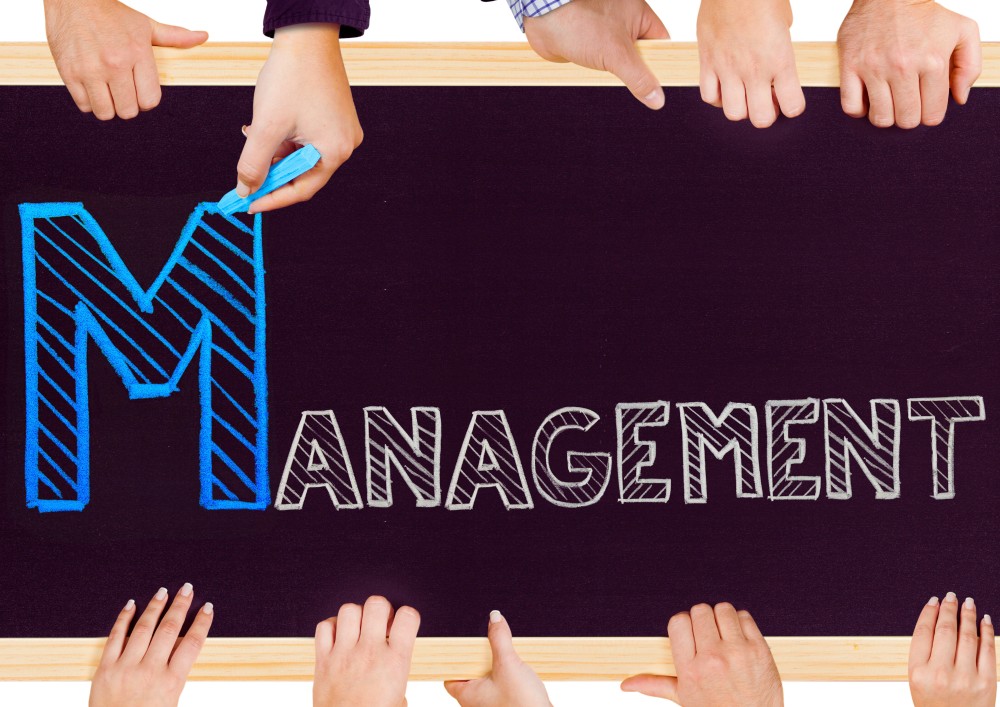
HOAs are the organizations that manage to maintain the order, value, and quality of life within community associations. The HOA board members, often volunteers, take on significant responsibilities that include financial management, upholding community standards, and addressing residents’ concerns.
All of the duties that an HOA board member is tasked with are important. However, fiduciary responsibility stands out as a critical aspect that every board member must understand and uphold.
What does the term even mean – fiduciary responsibility?
At its core, fiduciary responsibility refers to the obligation of board members to act in the best interest of the association and its members. This duty is legally binding and encompasses several key principles:
- Duty of Care
The duty of care requires HOA board members to make informed decisions with the same level of care that any prudent person would use in similar circumstances. This means staying informed about the association’s affairs, attending meetings, and making decisions that reflect the community’s best interests.
- Duty of Loyalty
The duty of loyalty demands that board members prioritize the association’s interests over personal or external interests. Conflicts of interest should be disclosed and avoided, and board members should not use their position for personal gain.
- Duty of Obedience
The duty of obedience involves adhering to the association’s governing documents, such as bylaws, covenants, and state laws. Board members must ensure that their actions align with these documents and uphold the association’s mission.
Fulfilling fiduciary duties is crucial for maintaining trust and confidence within the community. It ensures that the board’s decisions are transparent, fair, and focused on the collective well-being of the residents. Failure to uphold these responsibilities can lead to legal consequences and damage the association’s reputation.
Let’s take a look at everything that goes into the fiduciary responsibilities taken on by a HOA board member. We’ll cover accounting, budgeting, reserves, dues collection, and overall financial management.
Best Practices for HOA Boards Prioritizing Fiduciary Responsibility

To effectively manage fiduciary responsibilities, HOA board members should embrace the following:
| Invest in Education
Stay informed about state laws, governing documents, and best practices in community management. Attend workshops and seminars to enhance your understanding. |
Prioritize and Maintain Transparency
Keep open lines of communication with residents and provide regular updates on board decisions and financial matters. |
| Seek Professional Advice
Consult with legal, financial, and management professionals when making complex decisions to ensure compliance and sound judgment. |
Implement Checks and Balances
Establish procedures and systems for financial oversight, such as regular audits and transparent budgeting processes. |
While implementing steps that will commit board members to their fiduciary duties, remember that it’s also imperative to document all decisions. Keep detailed records of board meetings, decisions, and communications to demonstrate accountability and transparency.
HOA Board Responsibilities with Financial Reporting
HOA boards need to document and communicate:
- Budgets
- Accounts receivable
- Accounts payable
- Forecasts
- Reserves
Every HOA also has a responsibility to protect the funds of the community and avoid the risk of fraud. Everything must be clear, transparent, and accurate for their homeowners.
An HOA or community association needs to collect dues and assessments, charge fines and fees, and pay the bills for things like maintenance, security, and pool care. You’re also responsible for budgeting, tracking income and expenses, and creating reserves for future projects.
Meet your fiduciary responsibilities with these three things:
- Set Up Smart Accounting Systems
Accounting doesn’t have to be complicated, even if you have a large HOA. The board treasurer should be tasked with overseeing how the accounting process is managed, and he or she will need the support of the association and your property management partners and CPA.
The treasurer, a committee, and even an HOA management partner can lead the budgeting, ensure there’s a strong reserve fund, and audit the accounts and ledgers to prevent fraud and mismanagement. Responsible HOA boards need a short term spending plan, a long term budget, and a consistent way to follow the law, collect the dues, and pay the bills. There are also taxes to consider, insurance, and vendor contracts.
Consistent, transparent systems will make this possible.
- Keeping Operating Expenses and Income Accessible and Available
Investing in technology that allows your board to securely view and approve vendor bills will help you stay organized. Online payments for dues, fees, and assessments is also an excellent way to stay organized. Paper checks and written invoices tend to get misplaced. Keeping everything online is more transparent and secure. Keeping your expenses and income central and automated allows for less paper and waste. Why not go green and be a good corporate citizen as well as a financially responsible one? It also allows for the immediate tracking of invoices. HOA boards will enjoy better controls and approvals, and there’s less risk that you’ll encounter a late fee or an overdraft fee. Audits are also easy to manage with better documentation.
This leads to more peace of mind and less confusion. Communicating is much easier when there are online portals for homeowners to access and board members to oversee.
- Prepare for Fiduciary Responsibilities Like Taxes, Year-End Summaries, and HOA Meetings
A financial summary at the end of the year is an important communication tool, and a way to give homeowners in your association an easy-to-read reflection of where the community stands financially. It also prepares you for tax time.
HOA meetings are also an important way to communicate current and future financial issues. Even if your meetings are not well-attended, providing the meeting minutes that include a financial summary will give the members of your community an opportunity to stay informed.
HOW AN HOA MANAGEMENT COMPANY CAN PROVIDE SUPPORT

At Capstone Realty Consultants, we have been working with Winston-Salem community associations for years to provide innovative, modern, and effective systems to manage accounting and communicate your financial status to homeowners. We assist with fiduciary responsibilities, our services including:
- Paying operating expenses, including property tax, insurance, and debt service payments.
- Issuing monthly statements and annual summaries, which show the rents collected, any past due accounts, and where we are with the budget.
- Taking care of collections, reconciliations, and late notices.
Financial reports include:
- Bank statements and reconciliation reports as well as check registers.
- Deposit summaries.
- Budget comparisons.
- Balance sheets.
Owners receive a monthly disbursement via ACH and we work with your accountants to provide year-end financial summaries.
Building a Budget for Your Winston-Salem HOA
One of the most important fiduciary responsibilities HOA board members take on is the creation of a budget. And, budgets can be a challenge. Even an HOA board with every dollar carefully allocated can run into unexpected maintenance emergencies or surprise price tags, leading to overspending in one area and not spending at all in another area.
Budgeting is an important step in avoiding those surprises.
It doesn’t have to be overcomplicated, however. Every HOA board with an interest in responsible budgeting will do well to take a detailed and accurate look at where things stand currently and where they need to be a year out and even five years out.
Our community management experience has led us to help many HOAs budget for both the present and the future. Building budgets is one of the things we do best, and these are some of the tips we’re always providing to board members.
|
Last Year’s Numbers Can Help with Planning This Year’s Budget To plan for the present, we recommend looking at the past. It sounds poetic, but it’s as simple as reviewing your current and previous HOA budget. Pay close attention to the expenses and make adjustments for the new budget. It’s pretty common that things cost more than expected, so this review should give you a good idea of what you’ll have to spend in the coming year. Keep a history of budgets so you can get a long-term look at how money has been spent and whether there’s always been enough to cover the needs and the desires of the community. |
Annual Forecasting is Required for Accurate HOA Budgets Check in on the projects and expenses your community association will have in the next year or years. Even if it doesn’t need to be done right now, you might know that the clubhouse needs new paint. Factor it into the budget. Maybe the lights need to be updated outside or a surprise winter storm has dumped so much snow and ice that pavements are going to need resurfacing. These projects will impact your community’s bottom line, so plan for as many of them as you can. Don’t forget to have a budget in place to take care of any emergency work or evacuations. |
|
Prepare for Routine Contract Reviews and RFP Processes The budgeting process is a great time to evaluate the work your vendors are doing for you, and to explore other options if you feel you’re being charged too much. Send out RFPs for all your contracted services, including pool cleaning, lawn care and landscaping, trash removal, insurance, snow removal and plowing, and even tax preparation and accounting services. Make sure you have these as fixed costs and not estimates; you don’t want your maintenance budget to fluctuate too wildly throughout the year. |
The Importance of Keeping a Healthy Reserve Budget Conduct a thorough reserve fund analysis every time you work together on a budget. It’s a responsible part of the HOA board’s responsibilities to regularly update the analysis of reserve funds. You need to be sure your homeowners are contributing enough to cover expected expenses as well as surprise expenses that might come up. If a roof caves in and you’re not prepared financially, there’s going to be a lot of trouble when it’s time to replace that roof. There is nothing wrong with being over-prepared. |
Measure the expenses you’re forecasting against the projected income from fees, dues, assessments, and penalties.
The budget needs to be reviewed by the board, communicated to the community, and voted on for approval. Once the budget is approved, distribute it to the homeowners by mail, through a newsletter, or whatever type of communication you typically and legally use.
Transparency is important, especially when it comes to budgeting for an HOA.
Collect Dues in a Manner that Promotes Transparency

Speaking of transparency, the collection of dues has to be an important part of the HOA board’s fiduciary duty to the community.
Communicate the purpose and the process to the entire community. No one wants to feel like they’re throwing money at something that they don’t understand or don’t have information about.
Promoting transparency around HOA dues can be a great way to increase support for the payment of these dues. When you’re open and honest about why their money is needed, you’ll help members to understand why their dues are essential and where their money goes. Providing detailed invoices or reports with clear charts or graphs gives members full visibility into how their dues are spent. This can prevent conflicts or misunderstandings and increase member engagement around property-related decision making.
Annual meetings are a place where financial transparency has to be celebrated. When the agenda items include a discussion on HOA dues, attendance is likely to be higher, and participation is always good for the community.
Create a line item budget if you can and show your homeowners exactly where every dollar goes. They probably don’t think about the pavement resurfacing or the elevator inspections or the landscaping costs or the insurance that’s required to protect your entire community. They take these things for granted, but if they see how their dues contribute to those things, they’ll understand and appreciate the importance of their dues.
Best Practices in Collecting Dues
|
Allow for Online Payments Online dues payments make your processes much easier and it will also save you time. There’s no need to waste time sending invoices, reminders, and receipts manually. Your time is better spent on other tasks. By automating the billing system for your HOA dues, you’ll embrace an effective strategy that saves time, increases accuracy, and reduces your workload. With an automated billing system, you can ensure that invoices are sent automatically, you can immediately send reminders when payments are late or missing, and receipts are generated instantly. |
Invest in HOA Software Good HOA software streamlines communication, ensures maintenance of records, and allows easy access to financial reports. This type of technology is often expensive, but it’s well worth the investment. And, if you don’t want to buy the software yourself, look for that property management partnership that will include access to such platforms in the property management fee. At Capstone Realty Consultants, we already have the necessary technology in place. The right tech makes collecting dues and paying dues efficient and easy. |
Don’t Make Dues a Secret Everyone in the HOA pays dues. Everyone knows they’re a requirement of living in the community. Talk about them and answer questions and make sure you’re available to respond to any questions or concerns that come in. If a homeowner needs more time making a payment, be willing to work something out. If they want to pay for the full year rather than every quarter, be willing to set up that kind of payment arrangement. When you’re flexible, willing to listen, and able to show your homeowners that you care about them individually and the community as a whole, you’ll establish better relationships. Those good relationships facilitate the on-time payment of HOA dues. |
The HOA communities we work with count on us to provide sound financial oversight and management. Attention to fiduciary responsibility is important, and the way that dues are collected will have a huge impact on whether or not you’re meeting the expectations of your community and your bylaws.
A Final Word: The Basics of Good HOA Accounting
Every HOA needs to be budgeting, shoring up a reserve fund, and auditing the accounts to prevent fraud and mismanagement. You need a short term spending plan, a long term budget, and a consistent way to follow the law, collect the dues, and pay the bills. There are also taxes to consider, insurance, and vendor contracts.
With a professional management partner like us, you can delegate these financial tasks to a team of experts who understand the requirements and best practices of HOA accounting.
Fiduciary responsibility is more than good HOA accounting. It’s the backbone of effective HOA governance. By understanding and upholding these duties, board members can foster a thriving, harmonious community that benefits all residents. If you’re an HOA board member or considering serving, take the time to educate yourself about these responsibilities and commit to serving your community with integrity and dedication.
For more resources and expert advice on managing community associations, consider partnering with an experienced HOA management team like ours. Together, we can build stronger, more resilient communities.
Capstone Realty Consultants can help with the financial management of your Greensboro or Winston-Salem HOA. Please contact us to talk about our approach to your fiduciary responsibilities.
